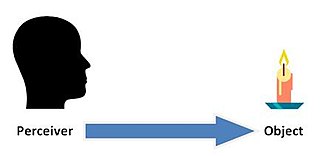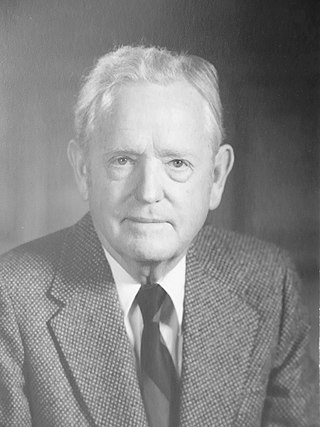Related Research Articles

Epistemology is the branch of philosophy concerned with knowledge. Epistemologists study the nature, origin, and scope of knowledge, epistemic justification, the rationality of belief, and various related issues. Debates in contemporary epistemology are generally clustered around four core areas:

In philosophy, empiricism is an epistemological view which holds that true knowledge or justification comes only or primarily from sensory experience and empirical evidence. It is one of several competing views within epistemology, along with rationalism and skepticism. Empiricists argue that empiricism is a more reliable method of finding the truth than purely using logical reasoning, because humans have cognitive biases and limitations which lead to errors of judgement. Empiricism emphasizes the central role of empirical evidence in the formation of ideas, rather than innate ideas or traditions. Empiricists may argue that traditions arise due to relations of previous sensory experiences.
Logical positivism, later called logical empiricism, and both of which together are also known as neopositivism, is a movement whose central thesis is the verification principle. This theory of knowledge asserts that only statements verifiable through direct observation or logical proof are meaningful in terms of conveying truth value, information or factual content. Starting in the late 1920s, groups of philosophers, scientists, and mathematicians formed the Berlin Circle and the Vienna Circle, which, in these two cities, would propound the ideas of logical positivism.
In philosophy, rationalism is the epistemological view that "regards reason as the chief source and test of knowledge" or "any view appealing to reason as a source of knowledge or justification", often in contrast to other possible sources of knowledge such as faith, tradition, or sensory experience. More formally, rationalism is defined as a methodology or a theory "in which the criterion of truth is not sensory but intellectual and deductive".

John Henry McDowell is a South African philosopher, formerly a fellow of University College, Oxford, and now university professor at the University of Pittsburgh. Although he has written on metaphysics, epistemology, ancient philosophy, nature, and meta-ethics, McDowell's most influential work has been in the philosophy of mind and philosophy of language. McDowell was one of three recipients of the 2010 Andrew W. Mellon Foundation's Distinguished Achievement Award, and is a Fellow of both the American Academy of Arts & Sciences and the British Academy.
In philosophy of science and in epistemology, instrumentalism is a methodological view that ideas are useful instruments, and that the worth of an idea is based on how effective it is in explaining and predicting natural phenomena. According to instrumentalists, a successful scientific theory reveals nothing known either true or false about nature's unobservable objects, properties or processes. Scientific theory is merely a tool whereby humans predict observations in a particular domain of nature by formulating laws, which state or summarize regularities, while theories themselves do not reveal supposedly hidden aspects of nature that somehow explain these laws. Instrumentalism is a perspective originally introduced by Pierre Duhem in 1906.
Empirical evidence for a proposition is evidence, i.e. what supports or counters this proposition, that is constituted by or accessible to sense experience or experimental procedure. Empirical evidence is of central importance to the sciences and plays a role in various other fields, like epistemology and law.

In philosophy of perception and epistemology, naïve realism is the idea that the senses provide us with direct awareness of objects as they really are. When referred to as direct realism, naïve realism is often contrasted with indirect realism.
Early modern philosophy The early modern era of philosophy was a progressive movement of Western thought, exploring through theories and discourse such topics as mind and matter, is a period in the history of philosophy that overlaps with the beginning of the period known as modern philosophy. It succeeded in the medieval era of philosophy. Early modern philosophy is usually thought to have occurred between the 16th and 18th centuries, though some philosophers and historians may put this period slightly earlier. During this time, influential philosophers included Descartes, Locke, Hume, and Kant, all of whom contributed to the current understanding of philosophy.
Modern philosophy is philosophy developed in the modern era and associated with modernity. It is not a specific doctrine or school, although there are certain assumptions common to much of it, which helps to distinguish it from earlier philosophy.
Philosophical realism – usually not treated as a position of its own but as a stance towards other subject matters – is the view that a certain kind of thing has mind-independent existence, i.e. that it exists even in the absence of any mind perceiving it or that its existence is not just a mere appearance in the eye of the beholder. This includes a number of positions within epistemology and metaphysics which express that a given thing instead exists independently of knowledge, thought, or understanding. This can apply to items such as the physical world, the past and future, other minds, and the self, though may also apply less directly to things such as universals, mathematical truths, moral truths, and thought itself. However, realism may also include various positions which instead reject metaphysical treatments of reality entirely.
In the philosophy of mind, innatism is the view that the mind is born with already-formed ideas, knowledge, and beliefs. The opposing doctrine, that the mind is a tabula rasa at birth and all knowledge is gained from experience and the senses, is called empiricism.

An Essay Concerning Human Understanding is a work by John Locke concerning the foundation of human knowledge and understanding. It first appeared in 1689 with the printed title An Essay Concerning Humane Understanding. He describes the mind at birth as a blank slate filled later through experience. The essay was one of the principal sources of empiricism in modern philosophy, and influenced many enlightenment philosophers, such as David Hume and George Berkeley.
Bastiaan Cornelis van Fraassen is a Dutch-American philosopher noted for his contributions to philosophy of science, epistemology and formal logic. He is a Distinguished Professor of Philosophy at San Francisco State University and the McCosh Professor of Philosophy Emeritus at Princeton University.
Laurence BonJour is an American philosopher and Emeritus of Philosophy at the University of Washington.
Hilary Kornblith is an American philosopher. He is a professor of philosophy at the University of Massachusetts Amherst and one of contemporary epistemology's most prominent proponents of naturalized epistemology.

Errol Eustace Harris, sometimes cited as E. E. Harris, was a South African philosopher. His work focused on developing a systematic and coherent account of the logic, metaphysics, and epistemology implicit in contemporary understanding of the world. Harris held that, in conjunction with empirical science, the Western philosophical tradition, in its commitment to the ideal of reason, contains the resources necessary to accomplish this end. He celebrated his 100th birthday in 2008.
Epistemology or theory of knowledge is the branch of philosophy concerned with the nature and scope (limitations) of knowledge. It addresses the questions "What is knowledge?", "How is knowledge acquired?", "What do people know?", "How do we know what we know?", and "Why do we know what we know?". Much of the debate in this field has focused on analyzing the nature of knowledge and how it relates to similar notions such as truth, belief, and justification. It also deals with the means of production of knowledge, as well as skepticism about different knowledge claims.

British philosophy refers to the philosophical tradition of the British people. "The native characteristics of British philosophy are these: common sense, dislike of complication, a strong preference for the concrete over the abstract and a certain awkward honesty of method in which an occasional pearl of poetry is embedded".

Donald Cary Williams, usually cited as D. C. Williams, was an American philosopher and a professor at both the University of California Los Angeles and at Harvard University.
References
- ↑ "Michael Richard Ayers". Oxford Reference. Retrieved 24 March 2024.
- ↑ Ayers, Michael (2005). "Ordinary objects, ordinary language, and identity". The Monist. 88 (4): 534–570. doi:10.5840/monist200588427.
- ↑ Miguens, Sofia; Osorio-Kupferblum, Naomi (2021). "The Thing Before Us". Grazer Philosophische Studien. 98 (4): 584–599. doi:10.1163/18756735-00000150. hdl:10216/138077.
- ↑ Ayers, Michael (2019). Knowing and Seeing. Oxford University Press.
- ↑ Osorio-Kupferblum, Naomi; Sickinger, Mira Magdalena (2021). "Special Topic: Book Symposium on Ayers' Knowing and Seeing: Groundwork for a New Empiricism". Grazer Philosophische Studien. 98.
- ↑ “About the structure of Berkeley’s philosophy and its relation to Locke” (p. 38)
- ↑ Ayers, Michael (2005). "Was Berkeley an empiricist or a rationalist?". The Cambridge Companion to Berkeley. pp. 34–62. doi:10.1017/CCOL0521450330.003. ISBN 9780521456579.